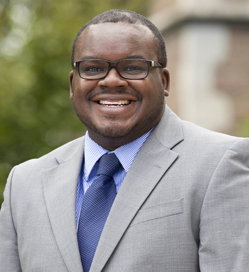 Darrell Hudson, associate professor at the Brown School
Darrell Hudson, associate professor at the Brown School
People who work in hourly positions and cannot afford to take any time off work are also at great risk, especially those who do not have health insurance. What happens if they get sick but continue to work? Even during the time it takes to develop symptoms, they are contagious. The recovery time and the contagious period both are significantly longer than the flu. These people become walking vectors transmitting the novel coronavirus to other people within their vicinity.
In the field of public health, there is a concept called the “prevention paradox.” The prevention paradox occurs when society enacts a costly policy — cost includes time, effort, inconvenience, boredom and loneliness — and the potential benefit to individuals is relatively low. People will ask: Is this truly necessary? Is the juice worth the squeeze?
Read the full piece in the St. Louis Post-Dispatch.
Comments and respectful dialogue are encouraged, but content will be moderated. Please, no personal attacks, obscenity or profanity, selling of commercial products, or endorsements of political candidates or positions. We reserve the right to remove any inappropriate comments. We also cannot address individual medical concerns or provide medical advice in this forum.